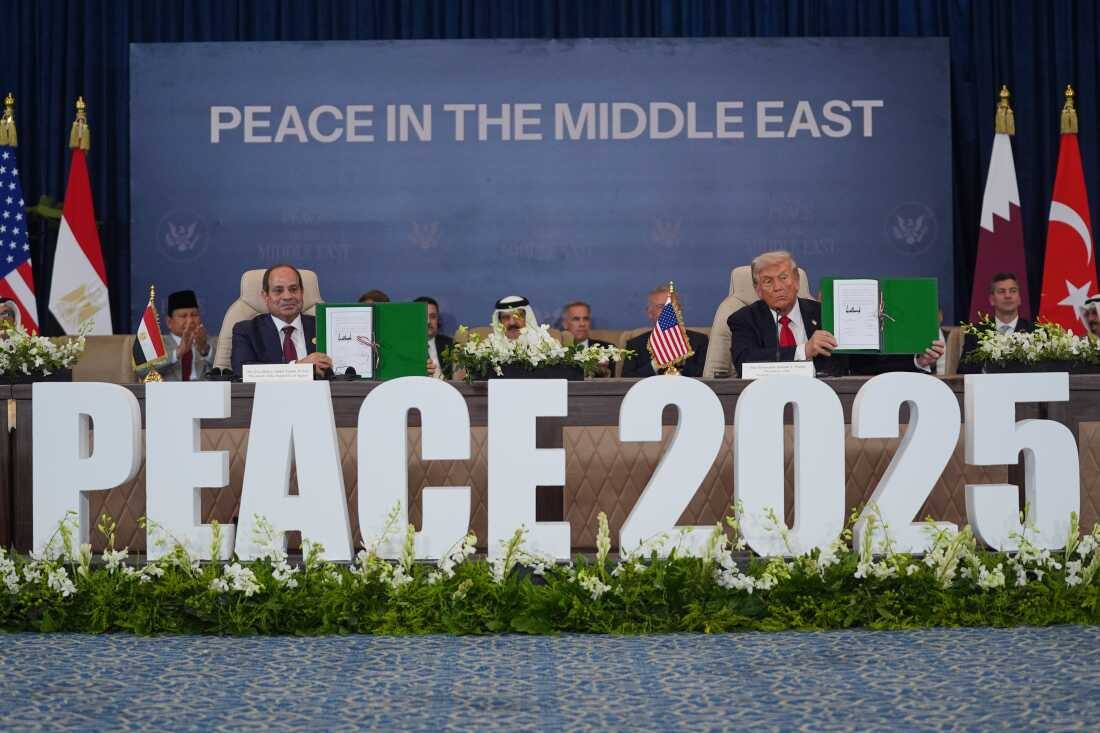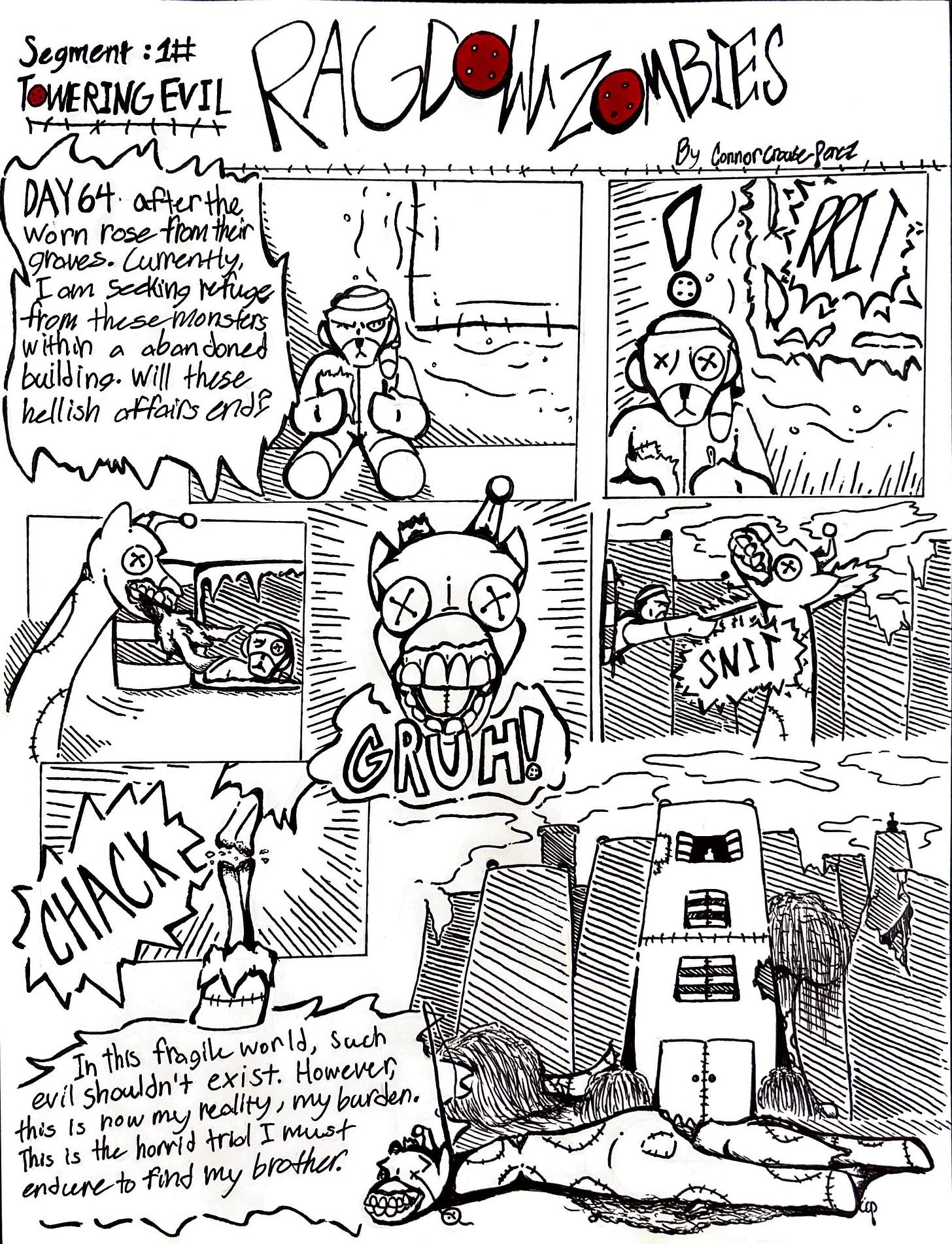A New Beginning?
In our first newsletter of the school year, one of our columnists considers the possibility of peace in Gaza and Israel.
Hey, Sailors!
I am so excited to share the first newsletter from The Beacon for this school year with you! As Editor-in-Chief, I can’t wait to work with the talented group of writers and editors we have this year. This year is particularly special for me, as it is my fourth and final year with The Beacon. I have loved being part of this publication, and I’m thrilled to spend this final year sharing our hard work with all of you.
This year, you can expect weekly newsletters from our columnists, sharing their opinions about everything from international affairs to pop culture. The newsletter will also feature an ongoing comic strip, Ragdoll Zombies, by contributing artist Connor Crouse-Perez.
On our Instagram, @nhhsbeacon, we’ll be posting digital columns that will focus on sports and more. And, of course, you can look forward to lots of special features and creative content from the whole Beacon staff throughout the year, including our print magazine in the spring.
Meet the Team:
Editor-in-Chief: Marisa Culmer
Social Media Editors: Harper Lohman & Azaio Maze-McDonnell
Copy Editors: Gloria Sbettega & Sophie Morquecho
Columnists:
Zoe DeMichele on International News
Kaila Anderson on Domestic News
Stella Solesbee on Pop Culture
Gloria Sbettega on Motorsports
Digital Columnists:
Leah Sobek on Football and Tennis
Sydney Meza Ramirez on Baseball and Soccer
We can’t wait to share our stories with you, starting this Friday with Zoe’s column on the Gaza peace deal. Thanks for reading, and here’s to making this year at The Beacon the best one yet!
— Marisa Culmer, Editor-in-Chief
Make sure you don’t miss future issues of this newsletter. Subscribe now and support our student journalism.

A New Beginning?
There is hope for peace in Israel and Gaza, but history urges caution.
By Zoe DeMichele
“The war is over. The war is over, you understand that?”
These were Donald Trump’s words as he departed from Washington, D.C., to travel to Sharm El-Sheikh, Egypt, for the signing of his lengthy, 20-point peace agreement regarding the conflict in Gaza.
The measures detailed in his deal are not new. There have been three ceasefires since Hamas’s attack in Israel on October 7th, 2023. All of them, whether primarily shepherded by Turkey, Egypt, or Qatar, bore the stamp of US influence and relied on agreements surrounding hostage-prisoner exchanges; a relief on humanitarian collapse in Gaza, such as allowing aid in at crossing points; and halting hostilities, including aerial bombardment, artillery strikes, and ground offensives.
All three of these ceasefires failed, with full fighting resuming within hours after being enacted. Both sides accused each other of withholding hostages and prisoners, and Gazans often felt that the promise of aid and access to humanitarian aid was not given in an acceptable amount of time. The United Nations, NGOs, and mediators alike recognize violations of each agreement from both sides. So, what makes Donald Trump, a world leader with an increasingly low global favorability, assume the ceasefire he brokers will be the one to end this war?
His proposals have a deep underbelly of confidence, often creating promises about the Israeli government’s behavior that it has never exhibited before. Much of Hamas’s cooperation, such as the required government changes and disarmament, relies on the promise that Israel will not violate predetermined lines and previous terms.
Since the 1990s, Israel has erected hundreds of permanent checkpoints and temporary “flying checkpoints” that obstruct Palestinian movement within the West Bank, clearing room for Israeli settlers, and some of them have been diagnosed by the International Court of Justice as violators of international law. In the same breath, the Israeli military has maintained control over Gaza’s air and maritime space, even after a unilateral disengagement in 2005, which heavily regulates who and what can enter the territory. The Israeli Defense Forces have been committing violations of international law for its long-term occupation and expansion of settlements, according to the UN, human rights organizations, and the ICJ.
Trump’s assumption of a peaceful regime change in Gaza, another key aspect of his deal, is, again, idealistic. When foreign powers attempt to stop a conflict through enforcing regime change, or disarmament, it’s often not peace they get, but permanent instability and resistance. The United States, and other Western powers alike, don’t have history looking upon them kindly in terms of inflammatory intervention.
Iraq in 2003, for example, where the United States dismantled its government under the guise of preventing further conflicts, seemed to be performative in its nature, as it contributed to hundreds of thousands of civilian deaths, and military occupation only fueled the rise of terrorist groups. Countries like Libya, Afghanistan, and Somalia still suffer the ongoing effects of oversimplified solutions from Western countries in areas that still hold complex political climates, which are already wary of intervention.
So, the question stands, as this fresh deal remains shakily intact, despite accusatory counterattacks from both sides, is it time to celebrate this perceived accomplishment, or is the other shoe waiting to drop, with conflicts building, and a nation unable to recover from continuous attacks on their infrastructure and people?
Content warning: The following comic contains images of violence.
Ragdoll Zombies #1: Towering Evil
By Connor Crouse-Perez



